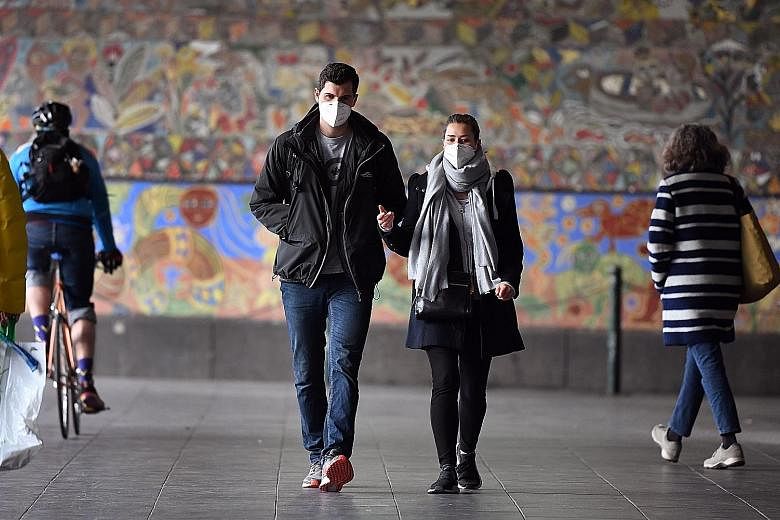Australia is experiencing its highest debt levels since the Second World War, as the government radically lifts spending to try to steer the economy out of the Covid-19 crisis.
Treasurer Josh Frydenberg released a special report yesterday that revealed the extent of the nation's economic descent since the outbreak of the pandemic. After 28 years of unbroken growth, Australia is now set to experience two consecutive years of contraction for the first time since the 1930s.
Mr Frydenberg said the huge debt that Australia was incurring highlighted the "harsh reality" faced by the nation and the world. The budget deficit for the year to June 30 is expected to come in at A$85.8 billion (S$84.6 billion) and hit A$184.5 billion (S$181.9 billion) in the 2020-21 financial year. "Australia is experiencing a health and economic crisis like nothing we have seen in the last 100 years."
The country entered the pandemic in a relatively strong condition. Despite sluggish growth and stagnant wages, public debt and unemployment were relatively low and the ruling coalition was preparing to herald a small budget surplus this year, the country's first in more than a decade.
But the pandemic has drastically reversed its fortunes. Australia effectively shut down its economy in March and has gradually been reopening, though an outbreak in Melbourne has forced the city to go back into lockdown for six weeks.
Case numbers in Melbourne, the capital of Victoria, are at levels far higher than what any city experienced during the first wave of the pandemic. Australia had recorded 13,306 confirmed cases of Covid-19 and 133 deaths as of yesterday. Of the 423 new cases reported, 403 were in Victoria.
The pandemic has sent unemployment to 7.4 per cent, the highest level in more than two decades. But this is expected to rise further to a peak of about 9.25 per cent at the end of this year.
To prevent an even greater surge in unemployment, the government has been paying struggling firms to keep staff on.
A JobKeeper scheme, which provides A$1,500 a fortnight to subsidise wages, was due to end in September. But the government said this week that it will keep it until March 28, but reduce it to A$1,200 a fortnight in September and A$1,000 in January.
Likewise, extra welfare benefits for the unemployed will also be continued but at a reduced sum.
Prime Minister Scott Morrison said last night the debt was necessary to save jobs and lives: "It's costly but it's what's necessary."
Analysts largely welcomed the move to extend the JobKeeper scheme, praising Mr Morrison for abandoning his long-held determination to try to produce a surplus.
Economist Chris Richardson, from Deloitte Access Economics, said the "awful" debts and deficits were necessary to assist businesses and families at a time when they desperately need help.
"If the economy were ordinary at the moment, then I'd be up in arms about a budget blowout - let alone one of this stupendous size," he wrote in The Australian Financial Review. "Yet, things right now are anything but ordinary."
But the Covid-19 surge in Melbourne has been a sobering reminder that the forecasts presented yesterday may yet need further radical revisions.
The government has effectively assumed that Melbourne's lockdown will work and that other major cities will not endure similar surges and that international travel will resume from January.
These may turn out to have been tragically naive presumptions.











